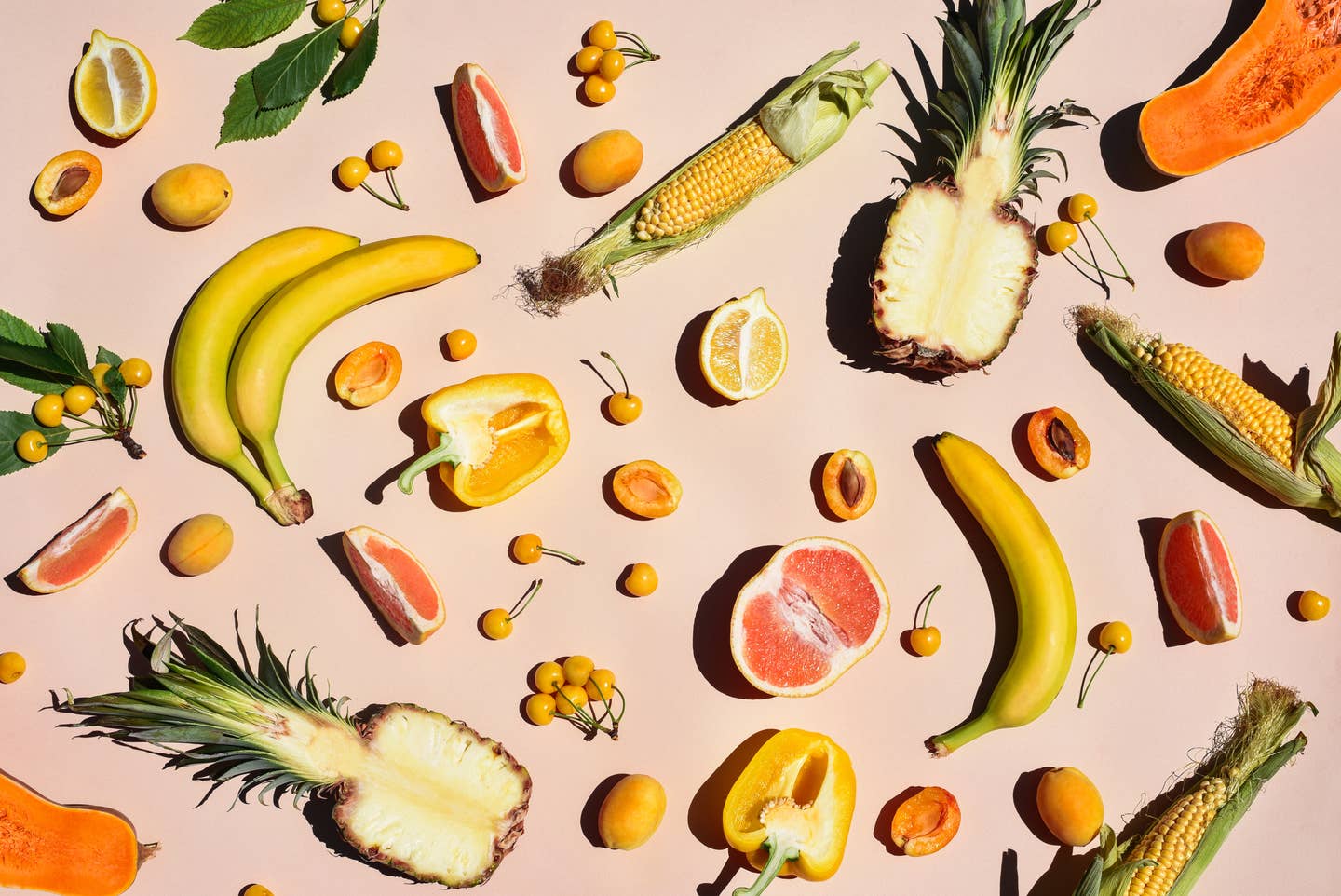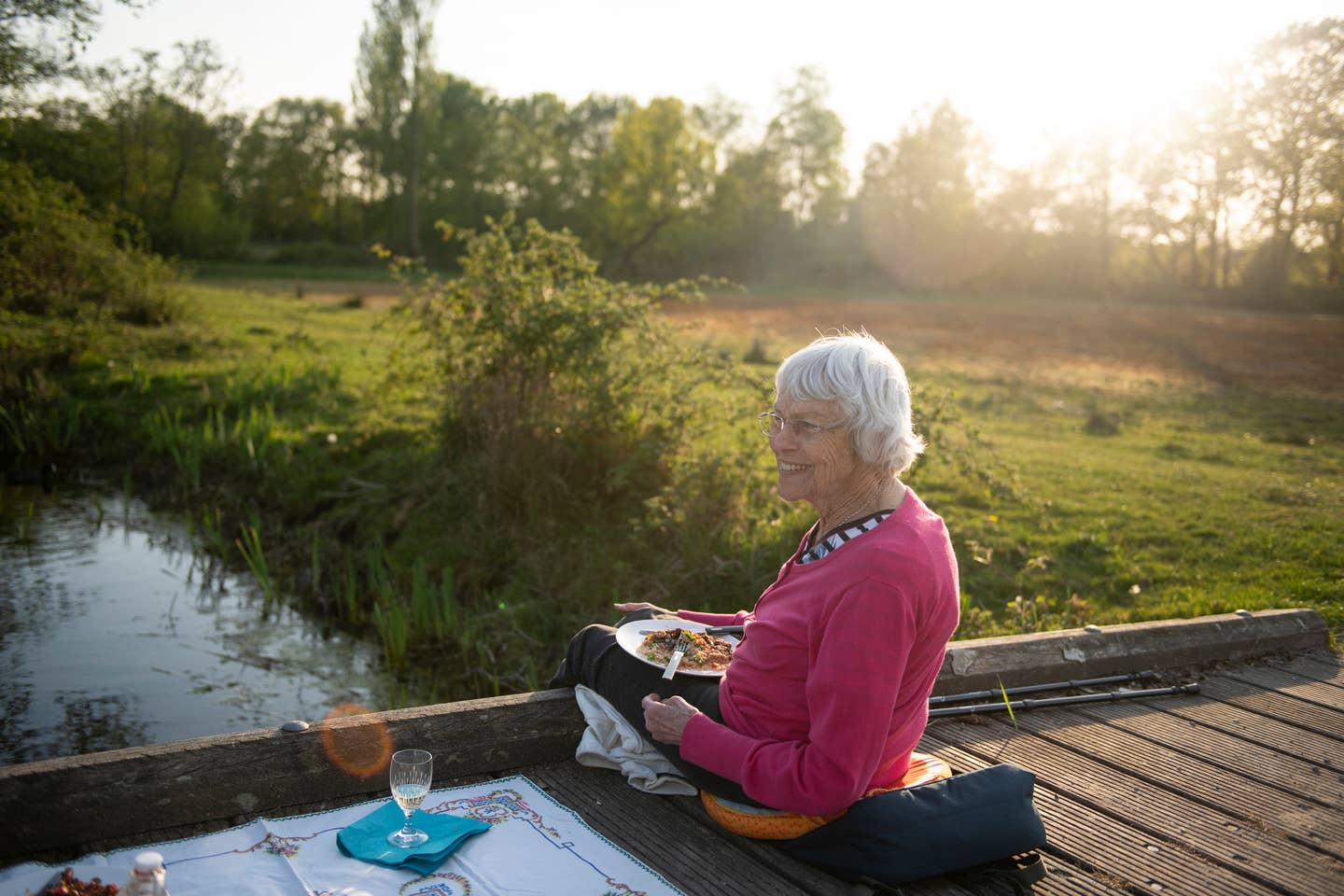
Torre Washington Settles the Question, “Can You Build Muscle on a Vegan Diet?”
Torre Washington is a life-long vegetarian who went fully vegan over two decades ago as he learned about the principles of Rastafarianism. It wasn’t health reasons, the environment, or the animals that made him go vegan—he did so for his integrity within the teachings of Rastafari. Washington is a celebrated bodybuilder who proves that you don’t have to consume animals to be strong. Years of fitness experience have made him an invaluable resource on all things related to fitness and vegan-friendly nutrition guides. Washington is one of The Beet’s favorite Black vegan influencers to follow for inspiration.
Here, in an exclusive interview with The Beet, Washington talks about how he made the transition from vegetarian to vegan, his sage advice for those who want to go plant-based and maintain their fitness, and his love of Japanese sweet potatoes. He shows that a vegan diet can support a fitness lifestyle without limitations. We think his advice will inspire you to turn to plant-based proteins.
TB: What made you decide to live a plant-based life?
TW: I was raised as a vegetarian. My mother is a Seventh-day Adventist and they have this message that they portray to the world which is called the Adventist Health Message. It speaks of getting nutrition from the earth— biblically the Garden of Eden.
I started out that way and in 1998 I had been going through the school of Rastafari. I wore locks and was studying the actual historical background of Rasta.
They have a lifestyle they call Ital where you’re eating mostly from the Earth. You utilize everything from the Earth so even down how you clean your utensils. In Jamaica, they use coconut shell bowls.
I didn't want to say I'm a Rasta but then be a hypocrite. My integrity was more important than being then calling myself a Rasta. I couldn’t say I'm Rasta while not really living the true lifestyle. So, I decided to make sure that I only ate plants and fruits back in 1998.
It was a rough transition. The people I was around didn't understand how I ate. I didn't really know the word vegan. I'm not big on labels—they put us in a box.
TB: What do you typically eat in a day?
TW: Typical is very much a word I always kind of laugh at because I'm not typical when it comes to eating. I eat to maximize the calorie requirement at the start of my day. I tend to drink water first thing when I get up because I know that it helps to hydrate the body, balance the pH, and flush out toxins. I may start out with scrambled tofu with a banana and some water. Tofu is one of my main go-to's because it was around when I started out eating vegan in 1998. It was one of my staples.
Or, I love having oatmeal with peanut butter, raisins, brown sugar, and some cinnamon. Sometimes I do cereal—people kind of scoff at cereal but I've always been a cereal person. I look for a good cereal that says it’s vegan because we have to really check the ingredients nowadays.
When I'm getting close to competition my breakfast is tofu with a Japanese sweet potato and some greens, because I'm wanting to maximize more nutrition and really focus on just getting nutrition over just eating a bunch of stuff. Throughout a competition phase, your calorie intake gets lower. So you have to cut out certain things that are too high in calories, but taste really good.
TB: So, it’s safe to say you're a breakfast guy.
TW: I just like to eat, Lola! There's so much you can eat: I switch it up for lunch and dinner. I may have some lentils or kidney beans. I’ve been into kidney beans lately because they remind me of Jamaican rice and peas. So I've been doing kidney beans with rice sometimes and then I'll have kidney beans with Japanese sweet potato and double up on the carbs. With the beans, I’ll have broccoli, asparagus. Any green I can find. Brussel sprouts and broccoli are two of my favorites.
TB: Do you have a favorite smoothie recipe?
TW: I've been blending up a watermelon with the seeds. I’m not juicing it because I'm keen to get the fiber from the watermelon and the seeds. That mashing process can relieve some of the nutrients from the seeds.
TB: What’s your favorite meal to whip up at home?
TW: Sauteed tofu and vegetables. I put a lot of spices like cayenne pepper. I like spicy food, but I never realized that spicy is good for burning parasites, strengthening your immune system, boosting your metabolism, and burning fat. I’ll add Japanese sweet potato cutting it up into smaller slices and roasting them and throwing in some broccoli. I've been doing a lot of pea protein crumbles by a company called Longeve. You just hydrate it and season it the way you want. Pea protein is one of the highest sources of protein with the lowest amount of carbohydrates and fats.
TB: Do you have one ingredient you can't live without? I have a feeling it’s a Japanese sweet potato.
TW: Ha! Cayenne pepper! You can put cayenne on everything.
TB: Do you have a favorite vegan restaurant?
TW: It depends on where we’re going. If I'm in LA, one of my favorite places to go to is Pura Vita. It's an Italian restaurant. If you like Italian, I don't care if you’re vegan or not, this Italian restaurant is one of the best. My son loves it. Kids can be picky and he enjoyed it. In Miami, it’s got to be Planta. In London, Genesis was really good.
TB: What advice would you share with someone who is considering going plant-based?
TW: A lot of times, people question it and feel they have to do their research. Don't do research. Just dive in. Start eliminating things slowly. Don't be afraid to transition with the foods you know like Impossible Burger, Beyond Burgers, many people were raised on burgers and fries. They may think that they're not going to be able to get the same texture and taste going plant-based.
It's okay to transition slowly and eliminate things that you can replace. A lot of people have a hard time with cheese. Even if they didn't even know where cheese comes from they’ll feel it's hard to replace.
It's interesting, the terminology we place on things like cheese. To some people, cheese only means coming from a cow. That's not necessarily the case. It's a word created to symbolize that, but you can get cheese from nuts, almonds, and things of that nature.
TB: If you only have 30 minutes to exercise, what kind of workout would you do?
TW: The superset workout circuit. It hits your biceps and triceps, back then chest, hamstrings, and quads. Move around. You pretty much hit the entire body and you don’t stop between the sets. I’d do 12 reps on biceps, 12 reps on triceps—don’t stop between. Take a rest after that one and then move to the next set.
TB: Are there any foods or supplements you recommend to support muscle restoration?
TW: Like the word says, a supplement isn’t a necessity. So you're supplementing only if you're looking to increase or you're not able to get it elsewhere because of lack of convenience or time. I’d say a protein shake if you can't get it from your food, just to increase your protein intake because protein does have the effect of limiting the opportunity for the body to go into a catabolic state, meaning you utilize muscle for energy, and you can stay more anabolic where you're building muscle versus, losing muscle.
TB: Do you have a go-to pre and post-workout vegan snacks?
TW: I actually don't and I know that that's a big thing within the community, but it's not a necessity. Every now and then I eat blueberries before a workout or an apple with peanut butter because it’s a long-lasting energy source. It’s a good thing to eat something protein-rich and continuously eat throughout the day after your training session to replenish your body of the vital nutrients that you may have lost during the training session.
I'm an advocate of mentally being prepared to tackle your workout. It starts in your mind. When we get to a workout, most of us aren't happy to be there. We feel like we don’t want to work out but that we have to. You've already defeated yourself. We let our feelings get in the way. You only feel tired if you allow yourself to feel tired. You can push through a workout if you really want to. We spend too much time on outside substances to give us what we need.
More From The Beet






